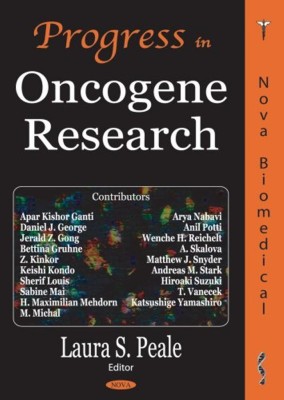Progress in Oncogene Research(English, Hardcover, unknown)
Quick Overview
Product Price Comparison
An oncogene is a gene that can cause a cell to develop into a tumour cell, possibly resulting in cancer. A protooncogene is a gene that is involved in signal transduction and execution of mitogenic signals, usually through its protein product. Upon activation, it (or its product) becomes a tumour inducing agent, an oncogene. The protooncogene can become an oncogene by a relatively small modification of its original function. Growth factors are usually secreted by a few special cells to induce cell proliferation in other cells. If a cell that usually does not produce growth factors suddenly starts to do so (because it developed an oncogene), it will thereby induce its own uncontrolled proliferation (autocrine loop), as well as the proliferation of neighbouring cells. There are six known classes of protein kinases and related proteins that can become an oncogene: 1. Receptor tyrosine kinases that become constitutively (permanently) active like the epidermal growth factor receptor (EGFR), platelet-derived growth factor receptor (PDGFR), and vascular endothelial growth factor receptor (VEGFR). 2. Cytoplasmic tyrosine kinases like the Src-family, Syk-ZAP-70 family and BTK family of tyrosine kinases. 3. Regulatory GTPases, for example, the Ras protein. 4. Cytoplasmic Serine/Threonine kinases and their regulatory subunits, for example, the Raf kinase, and cyclin-dependent kinases (through overexpression). 5. Adaptor proteins in signal transduction. 6. Transcription factors. This new book covers topics from within this field of research.


